Etsy accused of 'destroying' sellers by withholding money
- Published
- comments
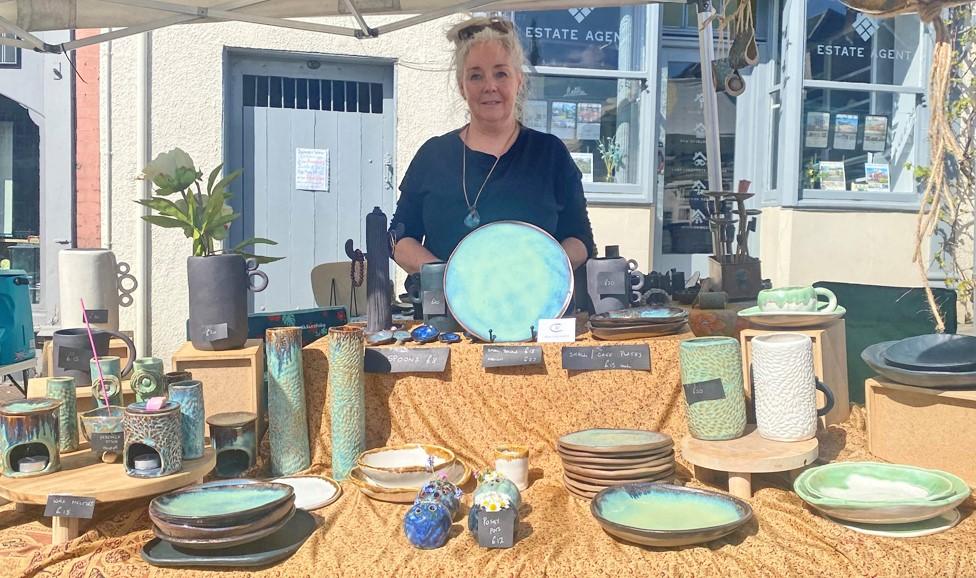
Rachel Collyer says she was given only a few hours' notice that her money was being put on reserve
Online marketplace Etsy has come under fire from sellers for putting 75% of their takings on hold for 45 days.
Hundreds of small businesses recently got an email from Etsy notifying them it was actioning its "reserve system".
Ceramics seller Rachel Collyer said Etsy was holding £899 of her money, which means she cannot afford to buy materials to keep producing.
Etsy said payment reserves were used to "keep the marketplace safe" and cover any potential refunds.
Ms Collyer has been selling ceramics on Etsy since 2021. She said she was given only a few hours' notice before her money was put on reserve.
"This is ruining my business - I can't afford to buy any clay or glazes. We might have to move house because I can't pay any bills," she said.
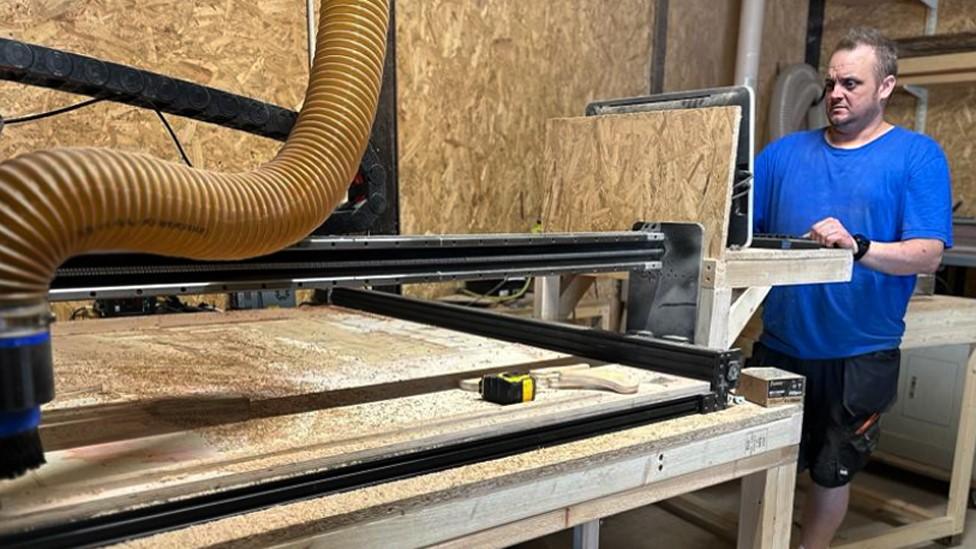
Dan said Etsy was holding £7,000 of his money
Etsy's payment policy states the reasons for putting money on hold include a sudden increase in sales, a shop having only made its first sale recently, the shop committing a "policy violation" or "other risk factors".
Some sellers told the BBC that two reserve periods were imposed on them consecutively.
Dan sells made-to-order wood furniture on the site and told the BBC he had no idea why his money was being held.
"Etsy are holding around £7,000 of my money, leaving us to use credit cards and family loans to try and keep our business running and keep food on the table," said the 44-year-old from Buckinghamshire.
His partner Sam said: "There is no ability to have the reserve lifted within the 90 days, you must see out the full period. It's destroyed my business."
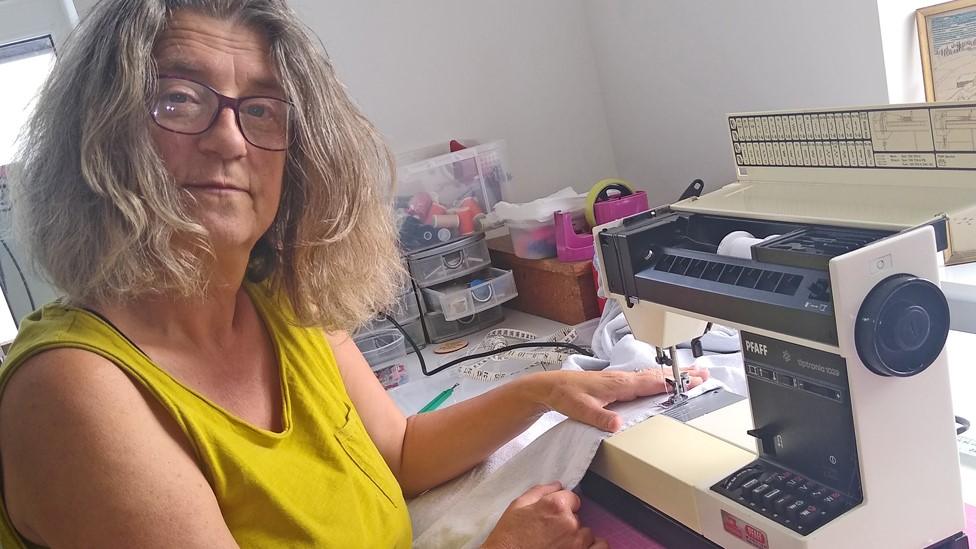
Joanna said she would not trade on Etsy after it put her on a reserve - then lifted it with no explanation
Joanna, who ran a bespoke underwear shop on Etsy, told the BBC she too could see no reason for her funds being withheld, and so suddenly.
"I have been selling [on Etsy] for four years," she said. "I woke up to a communication... stating that my account has been put on a 90-day period of reserve whereby they will hold 75% of my sales.
"We have no cases against us, we have performed no malpractice in any way," she said, adding that her account was not restored to normal even after following the site's guidance on lifting the reserve.
The 62-year-old said she would have made £5,000 this month and cannot take out a loan while she waits for the money.
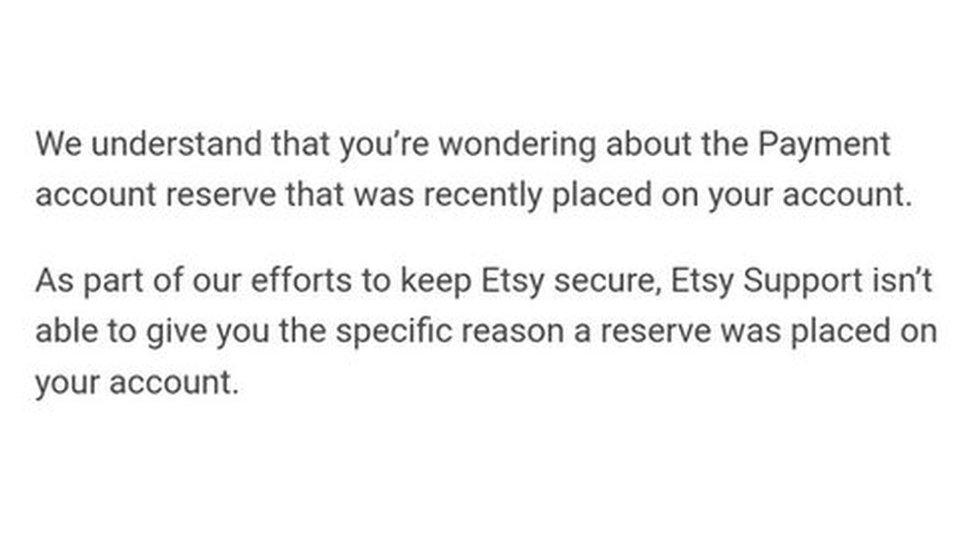
The BBC has seen emails from Etsy sent to sellers saying it can't explain why it is withholding people's money
"I cancelled all my on-reserve orders and put my shop on vacation. I won't trade with them. I can't afford to," she said.
And almost as suddenly as the reserve was implemented, it was lifted. She received no explanation for either decision.
Sellers on Etsy had their payments delayed earlier in the year, external following the collapse of Silicon Valley Bank (SVB).
Etsy used SVB to issue money to some of those that sell goods on the site.
But Etsy said only a small proportion of sellers had their pay-outs delayed as a result of the collapse.
Boycott
The BBC spoke to more than 20 sellers who had similar complaints. One, a disabled seller for whom Etsy is her only source of income, said the company stated it was taking "no complaints" on the issue. Etsy told her it "isn't able to give... [a] specific reason" for withholding thousands of pounds of her takings.
Many sellers wished to remain anonymous for fear of having their shops taken off the platform. The BBC has seen complaints about the reserve system from the US and various countries in the EU.
"If you challenge them or speak out, or don't accept their terms and conditions, your account becomes disabled," one independent UK seller told us.
Etsy disputes this and says that it wouldn't retaliate against a seller for voicing their opinion. It says it takes seller feedback very seriously.
Hundreds of affected Etsy sellers are planning a "strike", or boycott and are organising on various online groups.
An Etsy spokesperson said that the vast majority of sellers receive their funds when they make a sale. They added that the reserve system was used by many online sellers.
However, Amazon's level of reserve is much lower, at around 3% for established sellers until any disputes are resolved. , external
The Small Business Commissioner, Liz Barclay, said Etsy's "level of reserve is new to us".
She added that while she had no remit across complaints made against non-UK companies, "there have been more complaints recently" made against the US-based firm.
Ms Barclay said the commission was receiving reports of "many small firms owed several thousands of pounds", which was "heart breaking at a time when people are struggling with the rising cost of living on top of huge increases in costs of business bills and materials".
"My big worry is that for hundreds of thousands of businesses, this is their only source of income. Anecdotally, we hear that many sellers are women or minority groups and they need this money to pay the bills," Ms Barclay said

Who owns Etsy?
Etsy is an online marketplace that allows independent sellers to set up their own shop. It specialises in bespoke items, handicrafts or things not usually available in High Street shops.
Etsy Inc. is a US-based company which trades its shares on the NASDAQ stock exchange in New York, where it listed its stock in 2015. Etsy's shares currently trading at $99 each - a far cry from an all time high of $294 during the Covid pandemic in 2021.
Its biggest shareholders are major financial institutions such as Vanguard Group, BlackRock and JP Morgan.
The company is led by chief executive Josh Silverman who has worked at an eclectic mix of businesses such as online auction site eBay, the internet chat firm Skype and American Express. He has been chief executive since 2017.
It was originally founded in 2005 by Rob Kalin, Chris Maguire, Haim Schoppik and Jared Tarbell who started the business from Mr Kalin's Brooklyn apartment. None of them remain with the firm.

'Deeply concerned'
Martyn James, an online retail expert, said that while it made sense to not release money until the buyer had received an item, "the business should not be sitting on money for any longer as an anti-fraud measure".
He said he was "deeply concerned" at Etsy withholding sellers' money like this, and said it was an example of how online sites could "slip through the cracks of regulation".
Tina McKenzie, policy chair at the Federation of Small Businesses, said that sites should offer sellers stability and transparency when it comes to dealing with their funds.
She added that online sites dealing with small businesses "hold a lot of power over the sellers" and should therefore "use their power responsibly".
"People's livelihoods are at stake in many cases," Ms McKenzie said.
Etsy said it would "continue to improve upon our programs, including payment reserves".
The BBC understands that a representative of Etsy has met with UK government officials.
Related topics
- Published19 December 2022
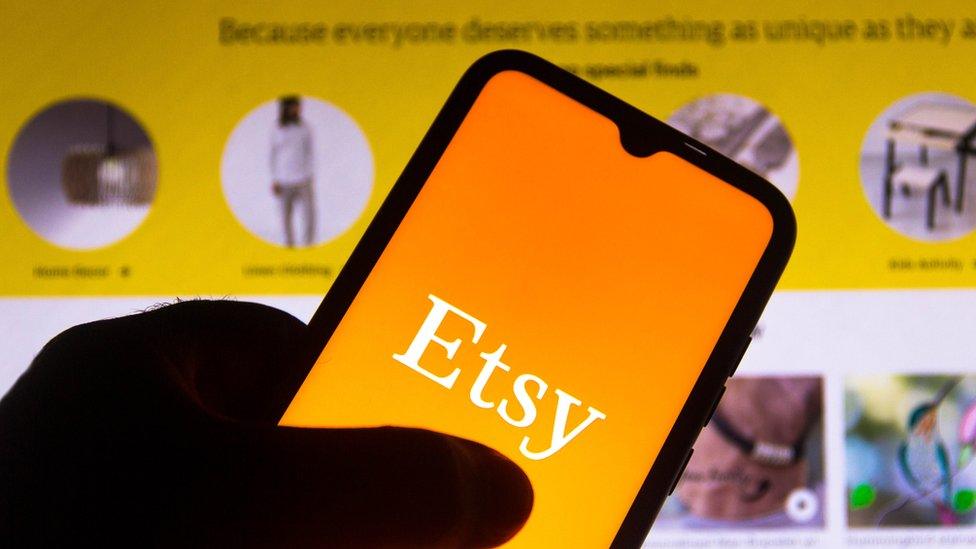
- Published18 May 2023
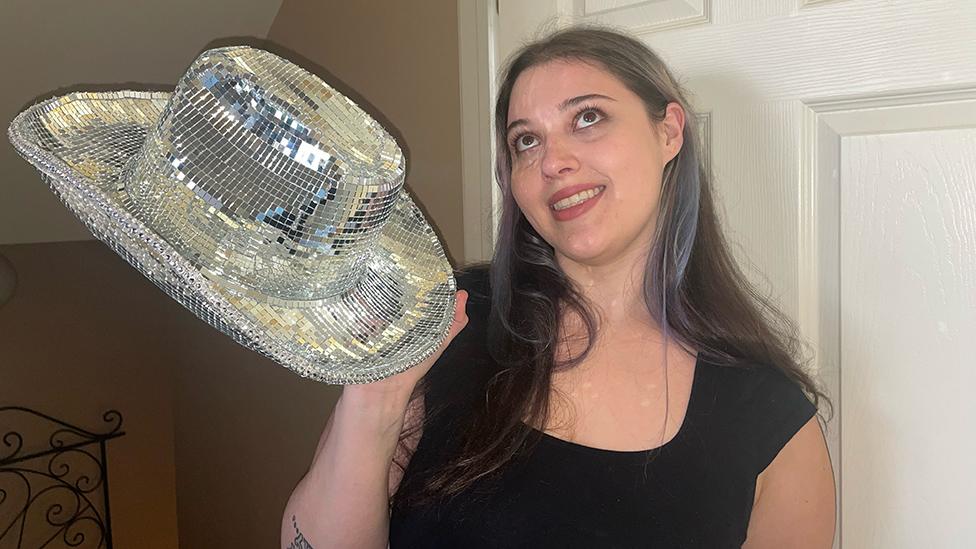
- Published16 February 2023
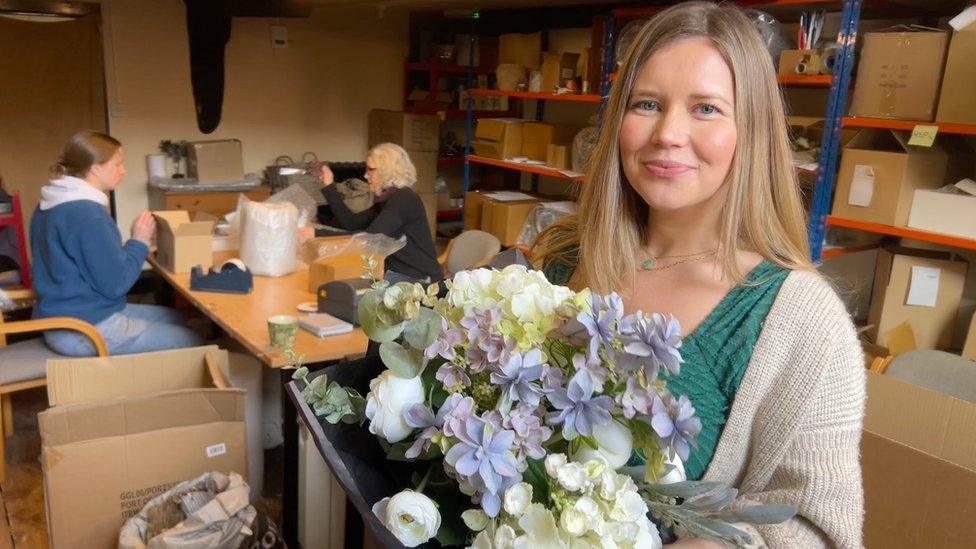
- Published12 June 2023
